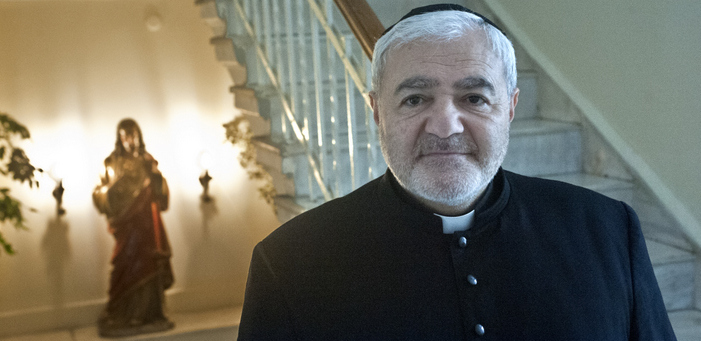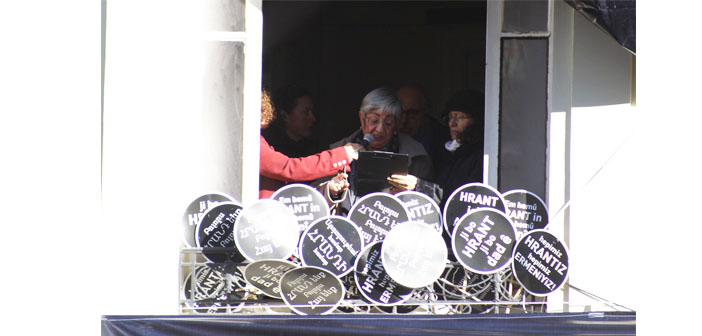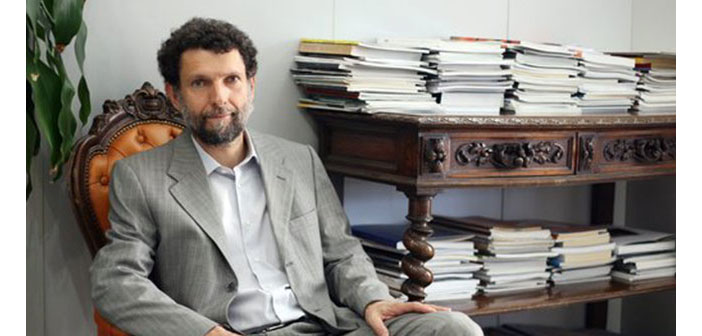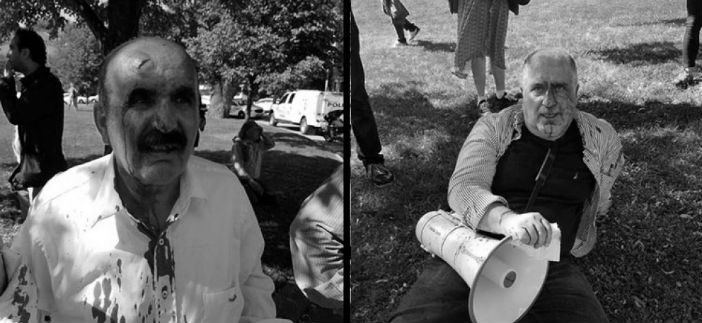For 4 years, clergymen from eastern churches have been helping to Christian refugees, especially to the ones outside of Istanbul. We talked to Father Orhan Çanlı from Syriac Catholic Church about problems of the Christian refugees in Turkey.
Turkey has been hosting
millions of refugees who had to leave their homes because of the wars
in Syria and Iraq. Christians in those countries are also among those
refugees. In addition to Istanbul, Izmir and Ankara, there are Syrian
and Iraqi refugees almost in all cities. Cities like Bilecik and
Aksaray have dense refugee population. For 4 years, clergymen from
eastern churches (consisting of Syriac Catholic Church, Ancient
Syriac Church and Chaldean Church) have been helping to Christian
refugees, especially to the ones outside of Istanbul and holding
masses for them. We talked to Father Orhan Çanlı from Syriac
Catholic Church about problems of the Christian refugees in Turkey.
What is the main problems of the Christian refugees in Turkey?
As eastern churches consisting of Syriac Catholic Church, Ancient Syriac Church and Chaldean Church, we are faced with an unexpected refugee problem. This is a major problem for all three churches. Those people left everything behind and came here. We call them refugees, because they don't want to stay here permanently; all of them are applying to UN for going to the US, Canada, Australia and Europe. They just stay here meanwhile. Of course, it is not easy to stay in a country with a culture and language that they don't know. This waiting period sometimes lasts for 3-4 years; thus, children cannot go to school. There are young people who had to drop university; they cannot work, since they don't have work permit, which is also a problem for the adults. Those people pay their rents for themselves, that is why unemployment is a serious problem. They live in neighborhoods with the lowest rents, they live under bad conditions. People of all ages suffer from some problems. We thank Vicar Patriarch Yusuf Sağ for he opened the doors of the church and we helped them. These people are fallen on hard times, it is our duty to help them. As clerics, we provide pastoral services for them; we hold masses in Arabic, deal with their wedding and baptism ceremonies. There are of course people dying here, we deal with the funerals. We bring communion to the diseased. We try to be a drop of clean water for the refugees.
These opportunities you mentioned are available to the refugees in Istanbul. How do you help the refugees outside of Istanbul?
In the last 3-4 years, around 50.000 Christian refugees came to Turkey. Some of them completed their paper work and migrated, but there are also families that have been waiting for 3-4 years; their children learned Turkish on the streets. We thank our government for letting those people stay here. I think this is very important. Not all refugees had the chance to settle in Istanbul. We wished all of them could have lived in Istanbul, Izmir, Ankara or Iskenderun, since there are churches at least. However, this wasn't possible and people went to cities like Bilecik, Sakarya, Bolu, Zonguldak, Düzce, Eskişehir, Kütahya, Kırıkkale, Amasya, Yalova. Those people stay at least for 2-3 years. And the number of clerics is not enough, we cannot reach out to everyone. However, we go to everywhere we can, hire a wedding hall and hold masses for the Christians there. The officials in the cities we visit help us all the time. For instance, we hold a mass in Yalova every month. We, as clerics, feel sorry for all refugees, that is why we ask UN and great powers to complete the paper work of the refugees as soon as possible. Children cannot go to school, young people drop college, they have no jobs; thus, they feel depressed.
You said that you have been holding masses in Yalova. Does Yalova have the largest number of Christian refugees?
Yes, there is a large number of refugees, but I don't know its the largest number, since there are many refugees in other cities as well. I held a mass for 1000 people in Bilecik, 750 people in Düzce and 650 people in Aksaray. There are Christian refugees almost everywhere, but the largest number of refugees is in Istanbul of course; something between 1000 and 4000. Considering the population of those cities, we see that these numbers are large. As I said, Syriac Catholic Church is not the only one holding masses for those people. We work together with Ancient Syriac Church and Chaldean Church.
Do you hold masses in religious holidays?
Last year, I held a Christmas mass for the refugees in Aksaray. For many of them, it was the first Christmas mass that they have attended for years. They were really happy, because those people were devoted Christians in their countries; they were going to church almost everyday. Their social interactions were taking place in the churches, they were forming church choirs. People attended the mass in Aksaray with a heavy heart. It is not easy to live there. It was a bittersweet holiday, but we tried to do our best.
We try to provide psychological support to them by reading excerpts from the Bible. 2000 years ago, Jesus Christ was a refugee as well. He ran way from Herod, his parents sent him to Egypt. He spent a couple of years there and returned after Herod died. Herod killed all the children in Jerusalem. After 2000 years, we see that nothing has changed. People still live among evils, they still oppress and kill each other. For 2000 years, we have been praying in all churches, demanding peace, but we cannot manage to overcome the evil deeds of people.
You said that officials are helping you. How is the relationship between the Christian refugees and the locals? Are they having any trouble?
Christians refugees cannot establish a dialog with the locals. They are living as closed groups, since they don't speak the language. We talk to them, ask whether they have any problems with the place they live in. They said that they haven't had any problem so far. Officials also haven't reported any unfavorable situation.





